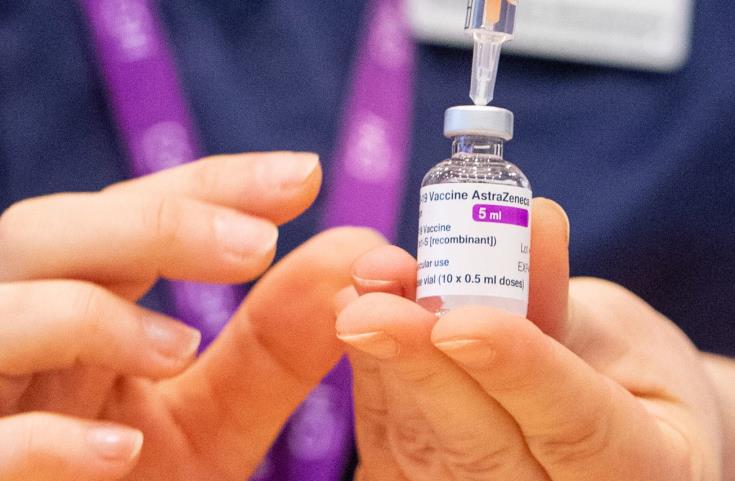Cyprus speeds up its vaccination program against COVID-19 as capacity doubles with the arrival of AstraZeneca while phase three of the rollout is launched.
The first batch of 7,200 AstraZeneca vaccines on Monday was added to the weekly 6,800 doses from Pfizer and 2,400 from Moderna.
Cyprus is to receive 69,000 vaccines from AstraZeneca before the month is out with the next batch expected on 17 February.
Health authorities will have more than 100,000 doses at their disposal, allowing Cyprus to move to stage three of the vaccination program, which includes over 75s and health workers.
As confirmed by the Health Ministry, unlike several EU counterparts, Cyprus will use the AstraZeneca vaccine on the general population including those aged 65 and above.
The decision was taken upon the advice of the Advisory Scientific Committee on COVID-19 which suggested administration of the Oxford-AstraZeneca vaccine to all age groups.
Asked, why the Health Ministry opted to administrate the AstraZeneca vaccine to all age groups, despite several EU states deciding not to, Health Ministry spokesperson Margarita Kyriacou said they acted on the instructions of the European Medicine Agency.
“The EMA is seen as the only relevant Authority in the European Union capable of evaluating the scientific data of pharmaceutical products.”
Phase 3
The arrival of the first batch of vaccines from AstraZeneca coincides with the ministry announcing the vaccination portal opening for people aged 79 and above from Tuesday morning (9 am).
Some 5,000 appointments, out of 10,058 announced on Saturday, will be at their disposal.
Appointments will be for February 9 to 20, in all districts.
“Implementation of the plan is continuing with sub-categories by age in line with the quantities that are received of the three licensed vaccines.
“The aim is to administer at least one of the doses of the vaccine to people aged over 75 and to health professionals within February,” the ministry said.
Upon the recommendation of the Scientific Advisory Committee, the second dose of AstraZeneca will be administered in the twelfth week, based on a study in the Lancet medical journal with data collected from the United Kingdom, Brazil, and South Africa.
Efficacy rate rose to 82.4% when there was at least a 12-week interval before the second dose, the study showed.
When the second dose was given less than six weeks after the first one, the efficacy rate was 54.9% and 60% between 6 and 8 weeks.
More vaccines will allow health authorities to reach a larger number of the population, offering them some protection until the second dose is administrated.
So far, some 33,000 doses have been administered to people aged over 80 as well as to health professionals, residents, and staff at care homes.
About 10,000 people have received both doses.










